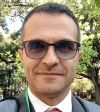Studying at the University of Verona
Here you can find information on the organisational aspects of the Programme, lecture timetables, learning activities and useful contact details for your time at the University, from enrolment to graduation.
Academic calendar
The academic calendar shows the deadlines and scheduled events that are relevant to students, teaching and technical-administrative staff of the University. Public holidays and University closures are also indicated. The academic year normally begins on 1 October each year and ends on 30 September of the following year.
Course calendar
The Academic Calendar sets out the degree programme lecture and exam timetables, as well as the relevant university closure dates..
| Period | From | To |
|---|---|---|
| I semestre (Lingue e letterature straniere) | Sep 26, 2022 | Dec 23, 2022 |
| II semestre (Lingue e letterature straniere) | Feb 13, 2023 | May 27, 2023 |
| Session | From | To |
|---|---|---|
| ESAMI LINGUE - sessione invernale | Jan 9, 2023 | Feb 11, 2023 |
| ESAMI LINGUE - sessione estiva | May 29, 2023 | Jul 22, 2023 |
| ESAMI LINGUE - sessione autunnale | Aug 28, 2023 | Sep 23, 2023 |
| Session | From | To |
|---|---|---|
| LAUREE LINGUE - sessione autunnale (a.a. 2021-2022) | Nov 7, 2022 | Nov 12, 2022 |
| LAUREE LINGUE - sessione straordinaria (a.a. 2021-2022) | Mar 31, 2023 | Apr 6, 2023 |
| LAUREE LINGUE - sessione estiva (a.a. 2022-2023) | Jul 10, 2023 | Jul 15, 2023 |
Exam calendar
Exam dates and rounds are managed by the relevant Foreign Languages and Literatures Teaching and Student Services Unit.
To view all the exam sessions available, please use the Exam dashboard on ESSE3.
If you forgot your login details or have problems logging in, please contact the relevant IT HelpDesk, or check the login details recovery web page.
Academic staff
 sara.paolini@univr.it
sara.paolini@univr.it
Study Plan
The Study Plan includes all modules, teaching and learning activities that each student will need to undertake during their time at the University.
Please select your Study Plan based on your enrollment year.
1° Year
| Modules | Credits | TAF | SSD |
|---|
1st foreign language2nd foreign language1st foreign literature2nd foreign literature1 module between the following2° Year activated in the A.Y. 2023/2024
| Modules | Credits | TAF | SSD |
|---|
1st foreign language2nd foreign language1st foreign literature2nd foreign literature3° Year activated in the A.Y. 2024/2025
| Modules | Credits | TAF | SSD |
|---|
1st foreign language1st foreign literature2nd foreign language2nd foreign literature1 module among the following (philology related to 1st or 2nd foreign language)1 module between the following| Modules | Credits | TAF | SSD |
|---|
1st foreign language2nd foreign language1st foreign literature2nd foreign literature1 module between the following| Modules | Credits | TAF | SSD |
|---|
1st foreign language2nd foreign language1st foreign literature2nd foreign literature| Modules | Credits | TAF | SSD |
|---|
1st foreign language1st foreign literature2nd foreign language2nd foreign literature1 module among the following (philology related to 1st or 2nd foreign language)1 module between the following| Modules | Credits | TAF | SSD |
|---|
Legend | Type of training activity (TTA)
TAF (Type of Educational Activity) All courses and activities are classified into different types of educational activities, indicated by a letter.
Russian Language 3 (2024/2025)
Teaching code
4S002935
Teacher
Coordinator
Credits
9
Also offered in courses:
- Russian Language 3 of the course Bachelor's degree in Languages and literatures for publishing and digital media
Language
Italian
Scientific Disciplinary Sector (SSD)
L-LIN/21 - SLAVIC STUDIES
Period
II semestre (Area Lingue e letterature straniere) dal Feb 17, 2025 al May 24, 2025.
Courses Single
Authorized
Learning objectives
At the end of the course the student will be able to: - know the most relevant morpho-syntactic structures of the Russian language, its lexical peculiarities, different linguistic registers, as well as the specific terminology for literature and publishing; - apply their knowledge of the language in the understanding of long and complex texts, as well as in oral and written communication, including in the areas of literature and publishing; - demonstrate to have the Russian language skills that correspond to the C1 level of the CEFR.
Prerequisites and basic notions
Students can take the exam only once passed the exams “Russian language 2” AND “Russian literature 2”. A C1 language certificate is also required.
Program
1. gerund
2. participles and the relative clauses with ‘kotory’ (who, which)
3. syntax of the complex sentences (depending clauses expressing time, cause, condition, aim)
4. the forms of the action
5. indefinite and negative pronouns
6. direct/indirect speech (including questions)
7. the conditional
8. Russian vocabulary in the literary field and translation.
Erasmus students are required to contact the teacher in order to receive instructions as regards the teaching program.
Students who cannot attend the lessons are required to study the materials on the moodle page, and to contact the teacher as regards the reference books.
Bibliography
Didactic methods
Frontal lessons, with projection of slides, uploaded on the e-learning webpage. Theoretical introductions, analytic reading, translation and comment on texts.
Non-attending students are invited to contact the teacher to make arrangements on the programme.
In the case of missed lessons, students will be able to use the materials uploaded on the moodle page, and to ask the teacher for an update during the office hours.
Learning assessment procedures
Written (test) and oral.
The questions will reflect the fundamental concepts and themes of the course, including the lexicon of metalinguistic reflection.
The writing (lasting one hour) will consist of:
- multiple choice questions on the vocabulary of metalinguistic reflection,
- IT>RU translations of short sentences,
- re-elaborations of complex sentences according to the structures addressed in the program. During the interview, reading, translation and analysis of the texts covered in class or assigned to independent study will be required.
Evaluation criteria
- content accuracy and completeness in terms of contents
- adequate analysis abilities
- clarity in the exposition, argumentative ability
- mastery of the subject-specific vocabulary.
Criteria for the composition of the final grade
The final grade of the exam will be the average of the grade of the written+oral exams and the average grade obtained in the CLA exams. The latter will be converted into /30 according to the conversion table presented in the document “Vademecum didattica”.
Students who have obtained external language certificates should obtain and equivalence certificate from the CLA before the date of the exam.
Exam language
russo
Sustainable Development Goals - SDGs
This initiative contributes to the achievement of the Sustainable Development Goals of the UN Agenda 2030. More information on sustainabilityType D and Type F activities
Nei piani didattici di ciascun Corso di studio è previsto l’obbligo di conseguire un certo numero di CFU di tipologia D e di tipologia F.
CFU D (attività a scelta dello studente)
I CFU D possono essere acquisiti mediante:
- insegnamenti non obbligatori nel proprio piano didattico (previa approvazione del Presidente del Collegio didattico per insegnamenti non selezionabili in autonomia)
- attività accreditate dal Collegio didattico
- competenze linguistiche (diverse o ulteriori) rispetto a quelle obbligatorie
- tirocini o stage
- TALC (competenze trasversali).
Competenze trasversali TALC
Nota bene: i corsi TALC sono riconosciuti solo come CFU D.
Il numero di CFU D va calcolato complessivamente sull’intero triennio/biennio e non è legato all'annualità.
CFU F
I CFU F sono solitamente relativi ad abilità informatiche, competenze linguistiche, stage e tirocini e ulteriori attività formative accreditate in questa tipologia dal Collegio Didattico.
Nel corso di laurea in Lingue e Letterature Straniere sono previste le seguenti tipologie:
- 3 CFU per terza lingua (livello B1)
- 3 CFU per informatica.
Le competenze informatiche possono essere acquisite attraverso:
- il superamento della prova pratica presso le aule informatiche di Ateneo,
- la frequenza dei corsi attivati da scuole e centri accreditati dall’AICA (Associazione Italiana per l’Informatica e il Calcolo Automatico) o riconosciuti dalla Provincia e dalla Regione e superamento della relativa prova finale. Le domande per il riconoscimento delle competenze informatiche acquisite precedentemente vengono esaminate dalla Commissione per il riconoscimento delle Competenze Informatiche.
Lo studente ha comunque la possibilità di effettuare esperienze di stage e tirocini che però vengono riconosciuti all’interno dei crediti a scelta libera (CFU D).
To discover all the teaching activities accredited by the foreign teaching college click here
Career prospects
Module/Programme news
News for students
There you will find information, resources and services useful during your time at the University (Student’s exam record, your study plan on ESSE3, Distance Learning courses, university email account, office forms, administrative procedures, etc.). You can log into MyUnivr with your GIA login details: only in this way will you be able to receive notification of all the notices from your teachers and your secretariat via email and also via the Univr app.
Student Career Management
Attendance and location
Attendance is not mandatory.
More detailed information on attendance requirements, please refer to the “Regolamento del corso di studio”, available under the “Regolamenti” section in “Il Corso”. While the Student Handbook does not require mandatory attendance, it is recommended to confirm specific attendance policies with your professors for each course, lab, or practical training.
Part time enrolment is an option. For more information, visit the Possibilità di iscrizione Part time.
Classrooms and exam locations are:
Classes and exams are held at the following locations:
- Polo Zanotto (close to the Foreign Languages and Literatures building)>
- Polo Santa Marta
Student login and resources
Tutor for Final Paper
Accredited Activities for CFUs D and F
Detailed Academic Calendar
Curricular Language Change
Computer Skills
Language Skills (first and second language)
Language skills in the Bachelor’s programme (third language CFU F)
https://www.univr.it/en/our-services/-/servizi/student-career-management-foreign-languages-and-literatures/language-skills-in-the-bachelors-programme-third-language-cfu-f-foreign-languages-and-literatures
Preparation of the study plan
Catalan Language Literacy - Academic Year 2024-25
Portuguese language course
Erasmus+ and other study abroad experiences
Linguistic training CLA
Course Orientation and Open day
Graduation
Threshold knowledge and Integrative Learning Requirements
Stage e tirocini
Le attività di stage sono finalizzate a far acquisire allo studente una conoscenza diretta in settori di particolare interesse per l’inserimento nel mondo del lavoro e per l’acquisizione di abilità professionali specifiche.
Le attività di stage sono svolte sotto la diretta responsabilità di un singolo docente presso studi professionali, enti della pubblica amministrazione, aziende accreditate dall’Ateneo veronese.
I crediti maturati in seguito ad attività di stage saranno attribuiti secondo quanto disposto nel dettaglio dal “Regolamento d’Ateneo per il riconoscimento dei crediti maturati negli stage universitari” vigente.
- Tutte le informazioni in merito agli stage per futuri studenti sono disponibili alla pagina Stage e tirocini.
- Tutte le informazioni in merito agli stage per studenti iscritti sono pubblicate in MyUnivr - come fare per - stage e tirocini.
- Tutte le informazioni in merito agli stage per le aziende sono disponili alla pagina Stage e tirocini per azienze.
Ulteriori informazioni al seguente link https://www.univr.it/it/i-nostri-servizi/gestione-carriere-studenti-lingue-e-letterature-straniere/stage-e-tirocini-lingue-e-letterature-straniere

 +39 045802 8409
+39 045802 8409

















































